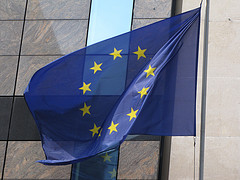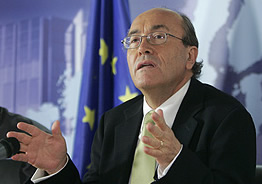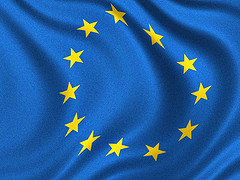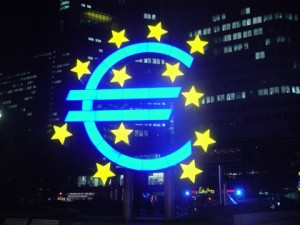
Low Key EU Summit: Tired Europe mired in crisis and recession or rebounding?
As 25 of the EU’s 27 member states signed the fiscal treaty designed to put a line under the euro crisis on a grey and misty Brussels morning, the mood at the summit was low key and low energy (the UK and the Czech Republic the two non-signatories). Politicians and officials alike did their best to spin that the crisis was past. French President Nicolas Sarkozy at his press conference, insisted ‘ we are turning the page on the financial crisis’ and that Europe had shown how fast it can move, bringing the treaty in just three months after the idea was launched at the December summit 3 months before. But Sarkozy himself looked tired and pale, rather than his …

A referendum after all: Ireland and the new EU treaty
Earlier today 25 EU member-states signed the Treaty on Stability, Coordination and Governance (the UK and the Czech Republic have opted out of the treaty). In an earlier post I considered whether any EU member-states would hold a referendum on the new treaty. In that post I argued that despite long declaring that they would not hold a referendum, Ireland was the most likely to hold one. Despite their earlier statements, Ireland announced on Tuesday that it would be holding a referendum to ratify the new treaty after all. Exactly why Ireland will hold a referendum is worth closer scrutiny. Ireland has held referendums on all European integration treaties from the Single European Act (SEA) onwards. Originally the Irish government …
The risks of the current approach to Greece and the Euro-crisis
Last week, I debated how much more the Greek nation can take given the enormous internal and external pressures on families, society and the nation. When discussing this with my friend and colleague Pavlos Efthymiou, we realised that some important points were missing and have rewritten the article together (also published on ELIAMEP). Mainstream International Relations (IR) thinking (see Realism, Liberalism) holds that the national interest drives states to act the way they do on the international stage. This post-hoc rationalising to explain policy outcomes works successfully enough to be employed by the majority of policy-makers, academics, and analysts to inform their audiences. However, what they are often missing is how such an interest comes about and what it is …

Towards a Two Speed Europe: Is the Inevitable Preferable?
Last week the Centre for International Studies held an excellent discussion panel (shortly to be made into a podcast) with Jean-Claude Piris (author and former Director General of the Legal Service of the Council Secretariat), discussing his new book, Towards a Two Speed Europe. Jean-Claude Piris, who has worked for many years in the highest echelons of European law-making and treaty formulation, is far more qualified than your blogger to evaluate the various implications of a formalisation of the currently observable divergence in paths of the European centre and its periphery. I shall not, therefore, attempt to evaluate his arguments from the point either of a lawyer or a European policymaker. I’m neither. Rather, I write merely as a citizen of …

Voters’ Block: Will EU governments hold referendums on a new treaty?
As the European Union lurches from crisis to crisis, the chances of getting a new EU treaty are on the rise. Such a new treaty might be the ‘Treaty on Stability, Coordination and Governance in the Economic and Monetary Union’, which is due to be signed in March by all EU members apart from the Czech Republic and the UK. Or, if the worst fears of the Eurozone countries are realised and Greece defaults, a new treaty will be necessary to clean up the ensuing mess. Although most attention tends to focus on the ins-and-outs of treaty negotiations, once a treaty has been signed it still has to be ratified by each country. And the ratification process has rarely gone …

Another Summit, Another Bleak Day for European democracy
EU leaders gathered in Brussels on Monday for more ritual banging of the euro-austerity drum, with 25 of the 27 member states agreeing to the Germany-inspired ‘fiscal compact’ treaty – to be signed in March (only the Czechs joining David Cameron in sitting on the sidelines). With the new treaty commitment to outlaw expansionary – Keynesian – economic policies, it was another bleak day for European democracy. Some had hoped that the summit’s focus on growth and unemployment, especially youth unemployment, meant the Europe’s top politicians were finally recognising Europe’s deepest problems – and might even take action. But it was a bleak day too for the unemployed with a tired rehash of free market policies in the summit statement …









